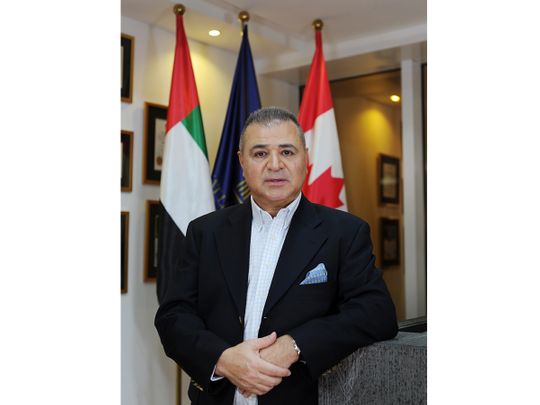
Highlight
Sam Bayat, Founder and Owner, Bayat Legal Services, talks about the heritage brand’s history while highlighting why transparency and playing by the rules is applicable to both consultants facilitating and applicants seeking immigration
When was Bayat Legal Services founded, what’s the ethos behind the brand?
Our trade licence was issued in December, 1993, but our operations started in Dubai in summer the same year. At Bayat Legal Services, we look at optimum results rather than settling for an acceptable solution. In the interests of my staff and the organisation, it’s also important for us at Bayat Legal Services to apply my NPM formula (Necessary Precautionary Measures).
I believe in planning ahead or forward thinking and prioritising what is really needed. This is our main operating philosophy. I also like to look into the requirements of both our staff and clients by providing them a workspace where they can feel at ease, with bigger work rooms, bigger waiting areas and more.
As a world-class legal firm in business immigration and economic citizenship, how curated are Bayat Legal’s services, how do you differentiate from the competition?
We offer advice and benefits to clients, far beyond those that are available from traditional sources of immigration and second citizenship or visa service providers. Our extensive knowledge of different programmes enables us to adequately advise our clients. Once the right path or programme is selected, it’s then up to our legal team, locally and affiliates to process the application. Our industry has commoditised immigration and citizenship and I have been a part of that but my primary role is to assist my clients, to determine what their needs are and to help them achieve their goals.
How could advisors help a client choose the best second citizenship option for their family?
Advisors can help you select the right one by looking at your needs and objec- tives. A few years ago, there were a few countries offering citizenships. But, now with so many nations offering a second citizenship programmes, applicants must evaluate these programmes in terms of their attributes, future issues and requirements. They need to understand what a particular citizenship would offer to them now, the process of citizenship application, the future of the programme and the future of their children’s spouses and grandchildren’s citizenship. Applicants need proper guidance because today the programmes are more comprehensive.
In light of the interview you recently gave to a media body based in the Caribbean last week, what are the factors applicants need to be aware of when applying for citizenship through real estate investment in the Caribbean nations?
An applicant must first understand the law, as ignorance of laws is not a defence. What I see most often, and this could apply to any programme, is that applicants are signing forms without reading them. At Bayat Legal Services, we take the client through the entire forms and enquire whether they agree with the particulars before they sign any form.
I know many firms that are just asking their clients to sign off on the last page of a form and never share the details of these forms. As an example, the citizenship law of Dominica in the Caribbean, requires a family of four to donate a sum of $175,000 to the government, or purchase for more than $200,000 a designated property but today there are consultants who request a payment of just $140,000 be made to avail of citizenship.
There is something wrong with these transactions. I want to make it clear that a citizenship can be revoked if obtained through fraudulent means, so applicants need to think twice before opting for a cheaper route to acquire an alternative citizenship.
Are you planning to expand Bayat Legal’s presence in the region? Could you share your expansion plans for the long term?
We are putting a lot of effort to expand our operations in Turkey as I feel their CBI offers interesting perspectives such as liveability. Saudi Arabia is also a huge market for us. We have an office in Jeddah and we plan to relocate a few full-time staff to Jeddah. I am also excited about India. In February, I visited Ahmedabad and there is a lot of aspirational value associated with the newly rich in India, with interest being generated on second citizenship in the country and it makes sense to set up a base there too.












